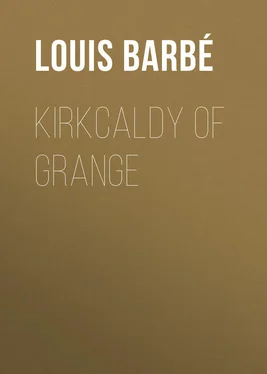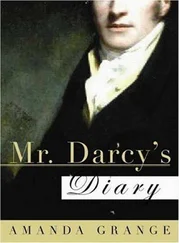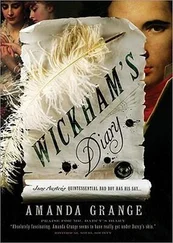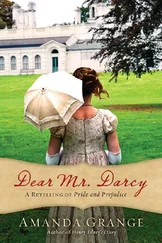Louis Barbé - Kirkcaldy of Grange
Здесь есть возможность читать онлайн «Louis Barbé - Kirkcaldy of Grange» — ознакомительный отрывок электронной книги совершенно бесплатно, а после прочтения отрывка купить полную версию. В некоторых случаях можно слушать аудио, скачать через торрент в формате fb2 и присутствует краткое содержание. Жанр: foreign_antique, foreign_prose, на английском языке. Описание произведения, (предисловие) а так же отзывы посетителей доступны на портале библиотеки ЛибКат.
- Название:Kirkcaldy of Grange
- Автор:
- Жанр:
- Год:неизвестен
- ISBN:нет данных
- Рейтинг книги:5 / 5. Голосов: 1
-
Избранное:Добавить в избранное
- Отзывы:
-
Ваша оценка:
- 100
- 1
- 2
- 3
- 4
- 5
Kirkcaldy of Grange: краткое содержание, описание и аннотация
Предлагаем к чтению аннотацию, описание, краткое содержание или предисловие (зависит от того, что написал сам автор книги «Kirkcaldy of Grange»). Если вы не нашли необходимую информацию о книге — напишите в комментариях, мы постараемся отыскать её.
Kirkcaldy of Grange — читать онлайн ознакомительный отрывок
Ниже представлен текст книги, разбитый по страницам. Система сохранения места последней прочитанной страницы, позволяет с удобством читать онлайн бесплатно книгу «Kirkcaldy of Grange», без необходимости каждый раз заново искать на чём Вы остановились. Поставьте закладку, и сможете в любой момент перейти на страницу, на которой закончили чтение.
Интервал:
Закладка:
Louis A. Barbé
Kirkcaldy of Grange
The materials available for a biography of Sir William Kirkcaldy of Grange are very unequally distributed over the two portions into which his life naturally divides itself. For the first of them, I have been obliged to content myself with the rather meagre and fragmentary information to be gathered from the old chroniclers. As regards the incidents that occur during those earlier years, I cannot, therefore, claim much novelty for my sketch. By looking closely into dates, however, I have been able to rectify some minor details, and to set forth events in their proper sequence.
On the second part of Sir William’s public career, the documents preserved in the Record Office throw considerable light. Some of them have been utilised, to a certain extent, in connection with the general history of the time; but, so far as I know, no attempt has yet been made to base on them a connected narrative of this important period of Grange’s life, or to draw from them an explanation of his policy. By using his own correspondence – both the letters which he wrote, and those which were addressed to him – I have endeavoured to represent the man as he wished to be understood by his contemporaries.
It has not been my special object to justify Kirkcaldy’s conduct; but I am not without the hope that the impartial account of it which I have striven to give, may show how unfair it is to form an estimate of him from a consideration of the bare fact that he was, in turn, the champion of two conflicting parties.
L. A. B. 8 Wilton Mansions, Glasgow, October 1897.I. THE KIRKCALDYS
In the parish of Kinghorn, on the northern shore of the Firth of Forth, a farm-house known as the Grange still marks the spot where, three centuries ago, the ancestral seat of the Kirkcaldys stood. The greater part of the present structure is comparatively modern; yet it bears a look of antiquity which indicates that its transformation has been gradual and fragmentary, and not wholly uninfluenced by the design of the original builder. The only date to be seen about it figures, accompanied with an illegible monogram, on the lintel of what is now an inner door, and commemorates some addition or alteration made in 1687. Two portions, however, show traces of even greater age, and may, with some plausibility, be looked upon as relics of the old baronial mansion. They are a dovecot, and a flanking tower of solid masonry. A low recess, near the foot of the latter, is traditionally believed to have been the entrance to a subterranean passage leading down to the shore, beneath the village which the cottages of the dependents of the family formed, and on the site of which a few dwellings still cluster together. That, in the days when the prosperity of the Lairds of Grange was at its height, this village was of some size and importance, may be inferred from the fact that it possessed a chapel of its own, dedicated to St Mary, and used as a burial-place for the family.
The Kirkcaldys, who took their territorial appellation from their estate of Grange, and who probably derived their name from the ancient town near which that baronial seat was situated, were amongst the oldest and most influential families in the county of Fife. As early as the thirteenth century, Sir William de Kirkcaldy is mentioned amongst the nobles on whom the fortune of war imposed temporary submission to Edward I., and who were compelled solemnly to take the oath of allegiance to him, on the Gospels, in presence of his Commissioners. In 1440, the name of Sir George de Kirkcaldy appears in a charter which made over to him one half of the lands of Seafield and of Tyrie.
About the middle of the sixteenth century, the family of Kirkcaldy was represented by Sir James, who, having married Janet, daughter of his neighbour Sir John Melville of Raith, was introduced by his father-in-law to the court and service of King James V. He was first appointed to be a simple Gentleman of the Privy Chamber, but was soon afterwards advanced to the more important and responsible post of Treasurer. The confidence and favour with which he was honoured by his royal master excited the jealousy and the fear of Cardinal Beaton, to whom he was opposed in religion, as an adherent to the doctrines of the Reformation, and in politics, as an ardent advocate of an alliance with England. All the efforts of his rival to bring about his fall proved ineffectual as long as the King lived. Under the regency of the Earl of Arran, however, the influence of the Churchman prevailed; and the Treasurer was set aside to make room for John Hamilton, abbot of Paisley.
Contemporary chronicles testify to the important part played by Sir James Kirkcaldy during the troubled days of his tenure of office. He is described by Melville as ‘a stout bold man, who always offered by single combat, and at the point of the sword, to maintain what he spoke.’ That, in those turbulent times, the fiery and rather overbearing temper of which these words are only a veiled and too partial description, should have brought trouble upon him, was but a natural consequence; and it is not surprising to learn from the evidence of a remission granted him in 1538, that respect for law and order did not always guide his conduct. A few years later, the energy of his character showed itself in the prompt and decisive action which he took under circumstances as critical for the State as they were dangerous to his liberty, and even to his life. It was he who, with Sir Thomas Erskine and Sir James Learmonth, on the authority of a verbal message brought to him by a youth, and with the King’s ring for his sole warrant, ordered the arrest of Sir James Hamilton, the powerful and notorious Bastard of Arran, lodged him in the Castle, brought him to immediate trial on a charge of being in secret intelligence with the banished Earl of Angus, the Douglasses, and other declared enemies of the realm, and of having formed a plot to break into the King’s chamber to slay him, and sent him to a traitor’s doom before influence could be brought to bear upon the fickle monarch in favour of his former favourite.
It was to the Treasurer that the delicate negotiations between James V. and his uncle Henry VIII. were entrusted; and it was owing to his influence that, whilst the King of England was at Pomfret, during his northern progress, ‘one of the King of Scots’ most secret councillors’ appeared at the Court, to arrange a meeting between the sovereigns. Unfortunately for Sir James’s scheme, his opponents discovered it at the critical moment. For the purpose of bringing him into discredit, they accused him of favouring the new creed, as in truth he did, though he had not yet made public profession of it; and they put his name on a list of noblemen whom they urged the King to burn as heretics. But inconstant though he was, James was not so easily to be turned against his Treasurer, for he believed him to be loyal, trustworthy, and thoroughly devoted to his sovereign’s interests. At their next meeting, he showed Sir James the black roll, and jestingly, or perhaps only half jestingly, asked him what objection he could raise to the Churchmen’s suggestions. Having thus been invited to plead his cause, Kirkcaldy availed himself to the utmost of the opportunity which the King’s good-nature afforded him. Not only did he draw a glowing picture of the advantages which would accrue to both sovereign and people from an alliance with England, and warningly point out the danger of rejecting King Henry’s friendly advances, he also denounced the selfish policy of his opponents, represented the gross abuses of the Roman Church, inveighed against the ungodly and scandalous lives of the prelates, and advised the King, not indeed to send the Cardinal and his bishops to the stake, as they wished to do by their enemies, but, if he would be well and rich, to take home again to the profit of the Crown all vacant benefices, by little and little, as they fell by the death of each prelate.
Читать дальшеИнтервал:
Закладка:
Похожие книги на «Kirkcaldy of Grange»
Представляем Вашему вниманию похожие книги на «Kirkcaldy of Grange» списком для выбора. Мы отобрали схожую по названию и смыслу литературу в надежде предоставить читателям больше вариантов отыскать новые, интересные, ещё непрочитанные произведения.
Обсуждение, отзывы о книге «Kirkcaldy of Grange» и просто собственные мнения читателей. Оставьте ваши комментарии, напишите, что Вы думаете о произведении, его смысле или главных героях. Укажите что конкретно понравилось, а что нет, и почему Вы так считаете.












